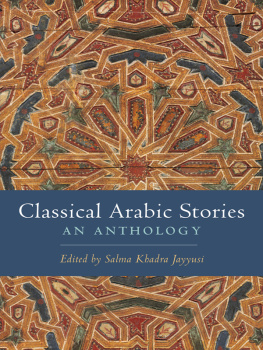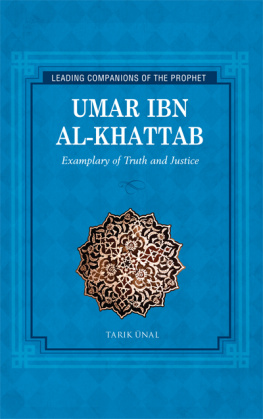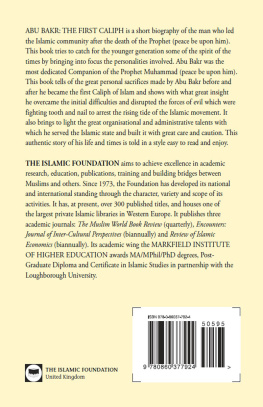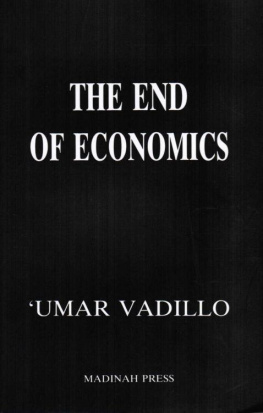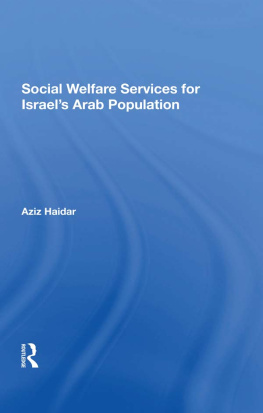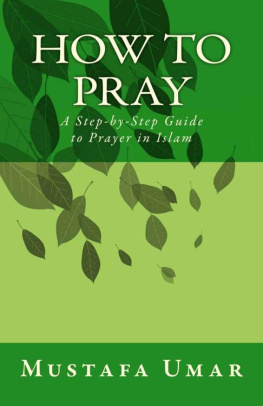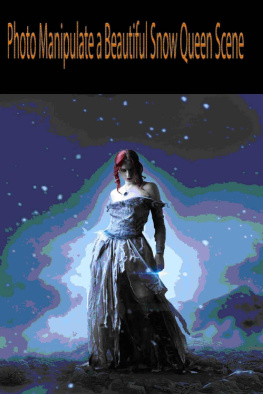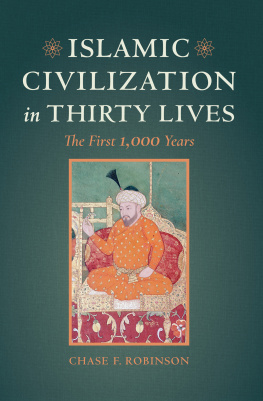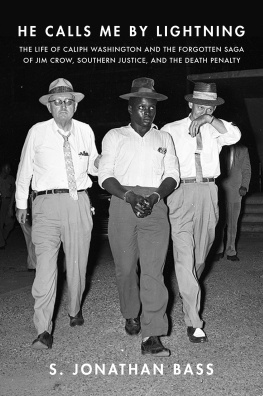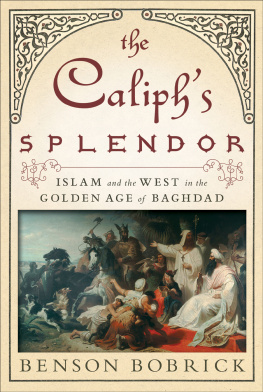Classical Arabic Stories

Classical Arabic Stories:
AN ANTHOLOGY

Edited and with an introduction
by Salma Khadra Jayyusi
COLUMBIA UNIVERSITY PRESS
NEW YORK
Columbia University Press wishes to express its appreciation for assistance given by The Pushkin Fund toward the cost of publishing this book.
Salma Khadra Jayyusi would like to extend her thanks to Dr. Ahmad al-Uthaim for his kind support toward the preparation of this anthology.

Columbia University Press
Publishers Since 1893
New York Chichester, West Sussex
cup.columbia.edu
Copyright 2010 Columbia University Press
All rights reserved
E-ISBN 978-0-231-52027-0
Library of Congress Cataloging-in-Publication Data
Classical Arabic stories : an anthology / edited by Salma Khadra Jayyusi.
p. cm.
Includes bibliographical references and index.
Translated from the Arabic.
ISBN 978-0-231-14922-8 (cloth : acid-free paper) ISBN 978-0-231-52027-0 (electronic)
1. Arabic literatureTranslations into English. I. Jayyusi, Salma Khadra. II. Title. PJ7694.E1C56 2010
892.708dc22
2009049504
A Columbia University Press E-book.
CUP would be pleased to hear about your reading experience with this e-book at .
References to Internet Web sites (URLs) were accurate at the time of writing. Neither the author nor Columbia University Press is responsible for URLs that may have expired or changed since the manuscript was prepared.
To my father, Subhi al-Khadra, my first mentor and model, who, with keen insight and a deep sense of duty, taught me from childhood how to love and revere a heritage of great value, and how to inhabit two ages simultaneouslyour brilliant classical age and our beleaguered modern oneand to serve them both.
To him this book, that embodies his vision, with love and lasting gratitude.
Contents
T his anthology is intended to fill a substantial gap in the study of classical Arabic literary prose. My realization of the great injustice to Arabic culture in modern times, even by Arabs themselves, through the neglect of its rich heritage in creative prose genres motivated my decision to bring about this anthology (as well as a book of essays, now in press [at E. J. Brill], The Classical and Post-Classical Arabic Story: Genres, History and Influences, by some of the best current scholars, Arabs and Arabists).
Despite their secondary status in the Arab critical tradition, classical narratives in Arabic continued to grow, finding new adventures and exploring as yet untried possibilities in Arabic literary prose. The inventiveness and skillful treatment of style, language, and subject matter should constitute points of interest for all students of world literature. However, as I discuss in my introduction to this volume (and elsewhere), it has been the attachment to poetry, the most-cherished literary form, which Arabs have sustained throughout their literary history, that has kept at bay the discovery and enjoyment of Arabic creative prose and the cultural enhancement it can afford. This anthology, however, limits itself to the story type, itself demonstrating great variety and creativity.
I must here thank first and foremost noted Saudi writer Abdallah al-Nasser, former cultural representative of the Saudi Ministry of Higher Education in London, where I first met him, for the decisive part he played in bringing support to this anthology. His help was prompted by his devotion to Arabic culture and its dissemination in the world, a devotion that has culminated in the accomplishment of several works of discourse and translation as part of the projects of PROTA and East-West Nexus. It was he who spoke to the well-known businessman Dr. Ahmad al-Uthaim, who graciously donated the subsidy needed for this work, proving once again that the love of literature and the pride Arabs take in their literary heritage are still very much alive. I thank him heartily for his immediate and positive response to this works needs, and for the gracious courtesy he showed me when, because of circumstances beyond my control, the work on this anthology was a little delayed. It is only through individuals of this outlook that Arabic business can be a major channel for cultural dissemination beyond the Arab world.
And many thanks to the colleagues who helped in assembling the work. My gratitude goes to Leila al-Khalidi al-Husseini, a lifetime friend and intellectual, who helped me with the selections for this volume; to my cousin Sawsan Nuweihid Ajlouni for her suggestions of several religious selections; to the novelist Laila al-Atrash for many cogent suggestions in the selection phase of this anthology, to Ghada Jayyusi-Lehn, professor at the American University in Sharjah, the United Arab Emirates, for her volunteer help in researching certain important matters for this works references, and to Antoine Raffoul for his kind help volunteered in the last preparation of a publishers copy of this book.
Heartfelt thanks go to the translators of these stories, Abd al-Wahid Lulua, Ibrahim Mumayiz, Bassam Abou Ghazaleh, Fayez Suyyagh, Roger Allen, Matthew Sorenson, Lena Jayyusi, and my brother, Faisal al-Khadra. Much effort and expertise went into creating an accurate and viable first translation. The second translation, the final polishing, was done mainly by Christopher Tingley with his usual care and precision and with the great benefit of his proficiency in English medieval literature. I cannot thank the translators enough for their painstaking, expert work. Jafar al-Uqaili was a wonderful assistant who did much for this book and for other East-West Nexus and PROTA books, and I owe him many thanks.
Salma Khadra Jayyusi
Editor
Director of East-West Nexus/PROTA
A rabic fictional genres have suffered a great injustice throughout their history, mainly through the secondary status they acquired in the rich Arabic critical tradition. Their importance and great variety and originality were overlooked in favor of poetry, the traditions oldest and most favored art form. The Arabic critical concept of literature in classical times, represented by a long list of critics and literary historians, concentrated disproportionately on poetry and bestowed much less attention on fiction. Poetry was regarded, and, to an extent, still is, even with the rise of a strong fictional tradition in the twentieth century, as the Arabs primary artistic expression. This well-entrenched attitude caused the many prose genres (both fiction and nonfiction) attempted by classical Arabs over the centuries to retreat into the dusty corners of world literature, unknown to most and unexplored fully in their artistic and semantic value even in the eyes of their own Arab inheritors. Moreover, this widely undervalued contribution, which boasted both charm and finesse in many of its forms, received far less attention than poetry not only from literary critics but also from the royalty and nobility of medieval times, most of whom gave bountifully both status and sustenance to the poets of their times.
Despite this lesser status, prose genres in classical Arabic continued to grow, enjoying great variety and finding cause for constant adventure, reflecting in part their explorations of the unbounded possibilities of Arabic literary prose. To my knowledge, the Arabic fictional prose venture was perhaps unmatched in its scope and aesthetic value among medieval cultures, at least west of India.
Next page
